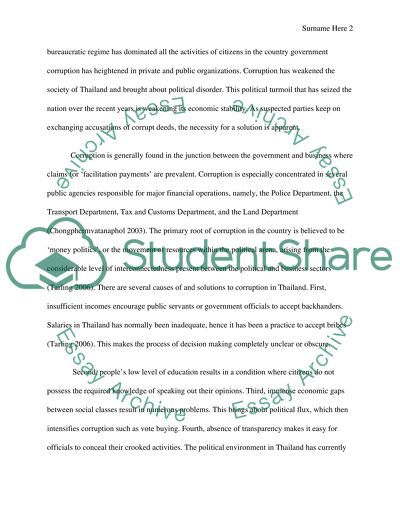Cite this document
(“Contemporary issues in Thailand Research Paper Example | Topics and Well Written Essays - 1500 words”, n.d.)
Retrieved from https://studentshare.org/environmental-studies/1431436-contemporary-issues-in-thailand
Retrieved from https://studentshare.org/environmental-studies/1431436-contemporary-issues-in-thailand
(Contemporary Issues in Thailand Research Paper Example | Topics and Well Written Essays - 1500 Words)
https://studentshare.org/environmental-studies/1431436-contemporary-issues-in-thailand.
https://studentshare.org/environmental-studies/1431436-contemporary-issues-in-thailand.
“Contemporary Issues in Thailand Research Paper Example | Topics and Well Written Essays - 1500 Words”, n.d. https://studentshare.org/environmental-studies/1431436-contemporary-issues-in-thailand.


